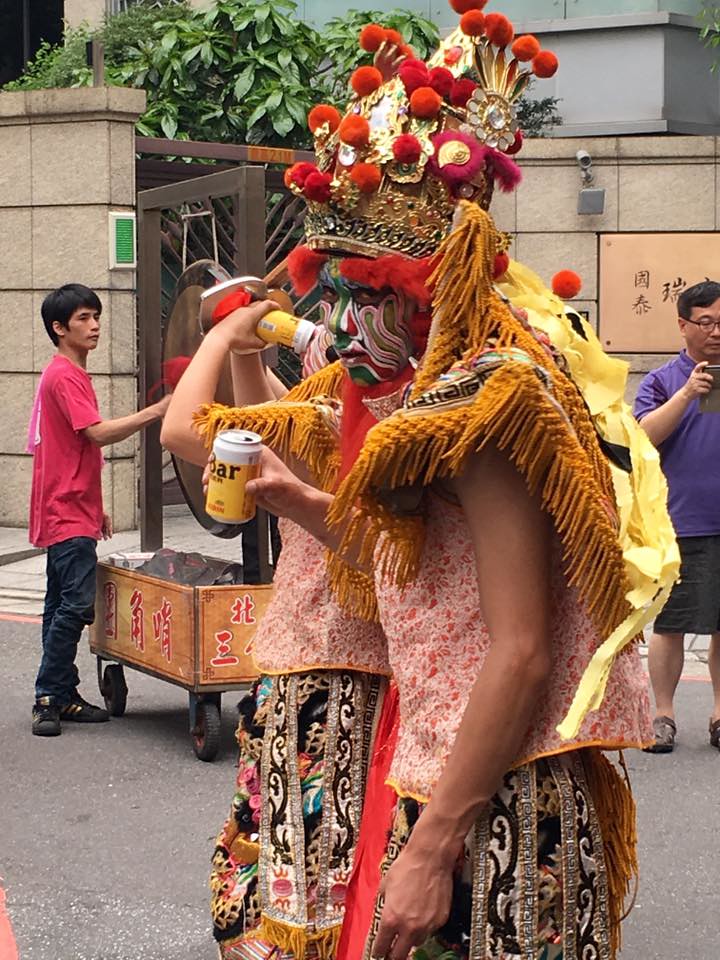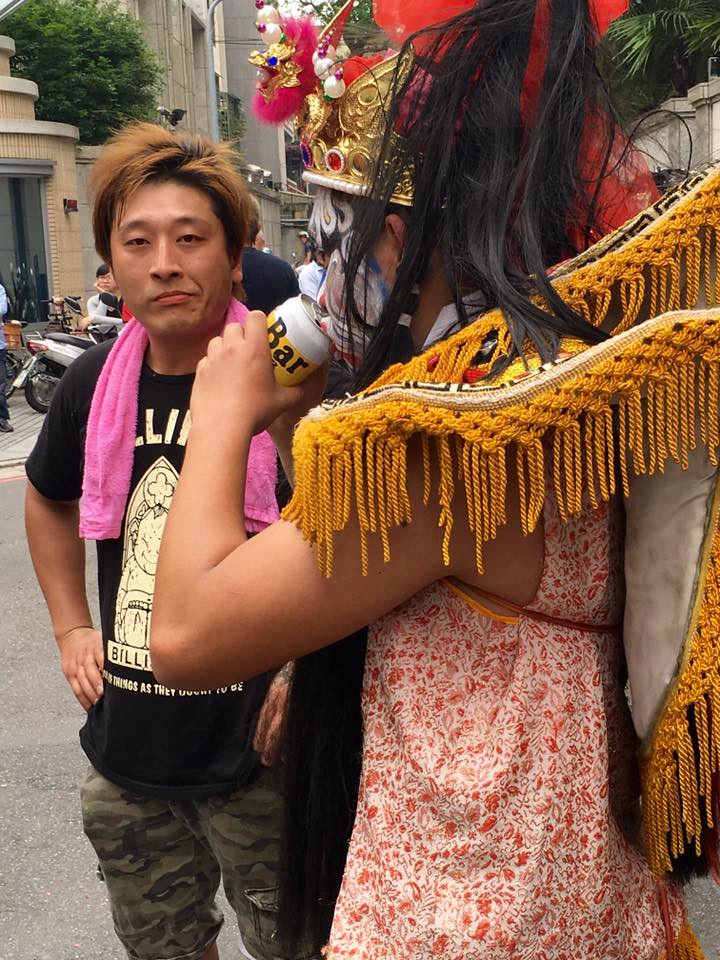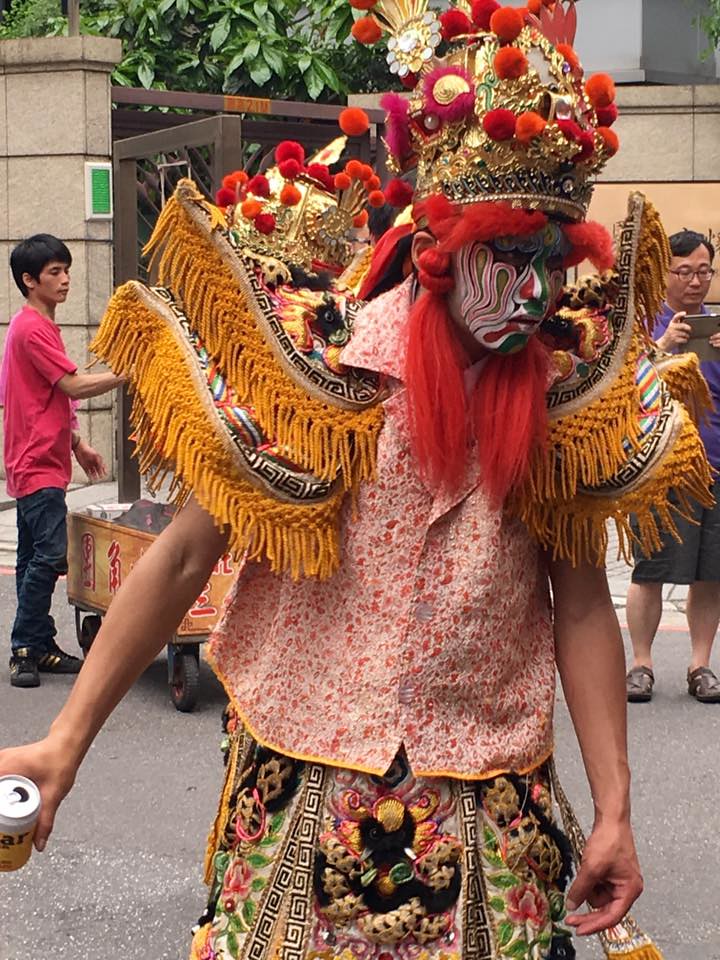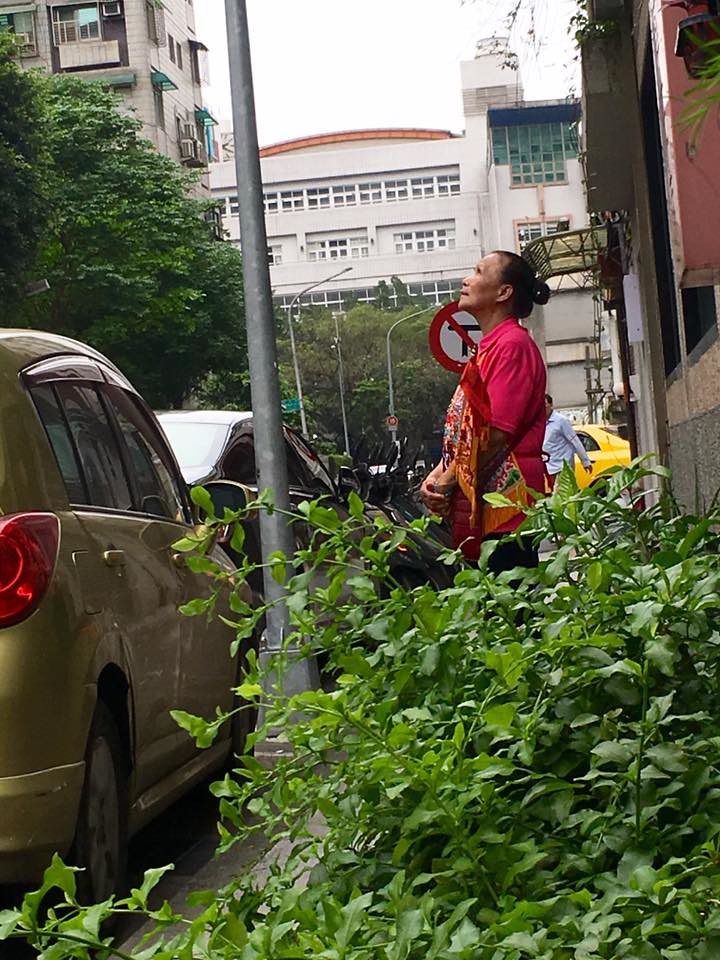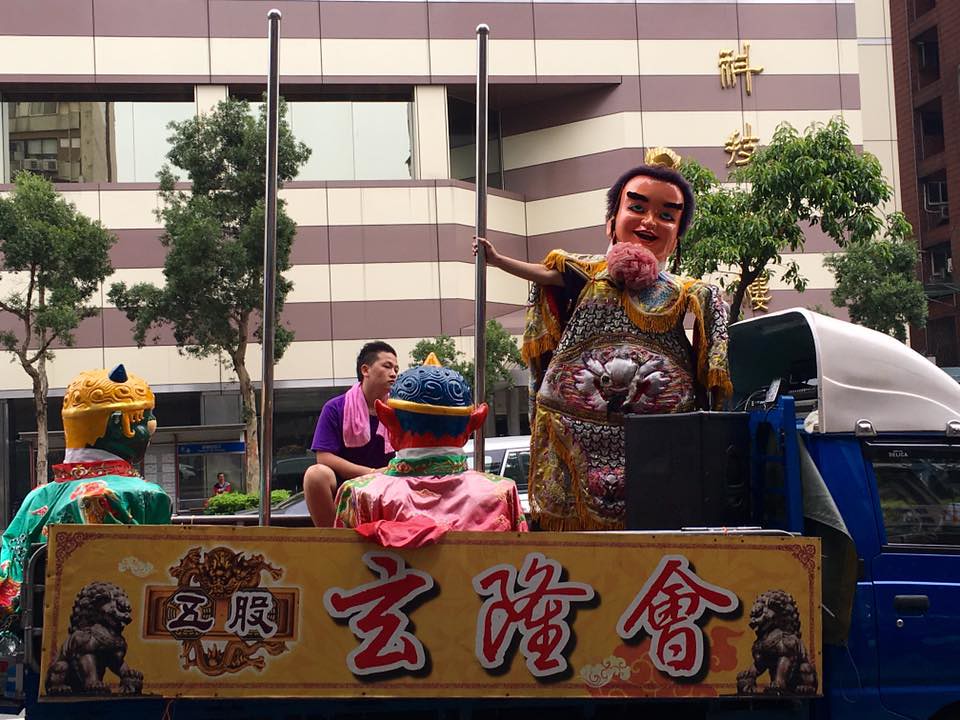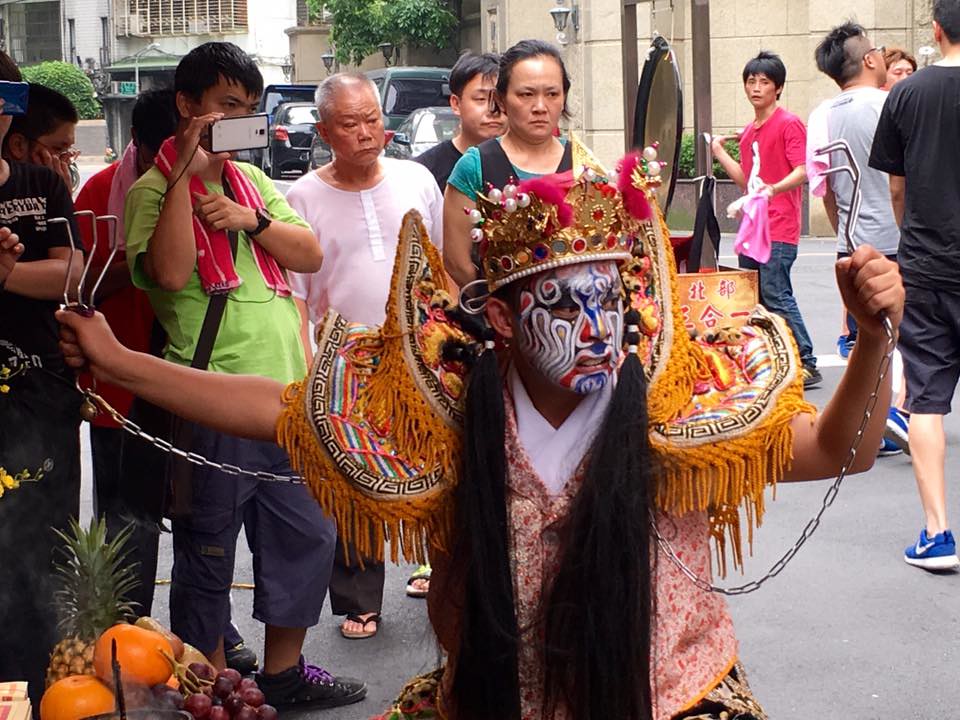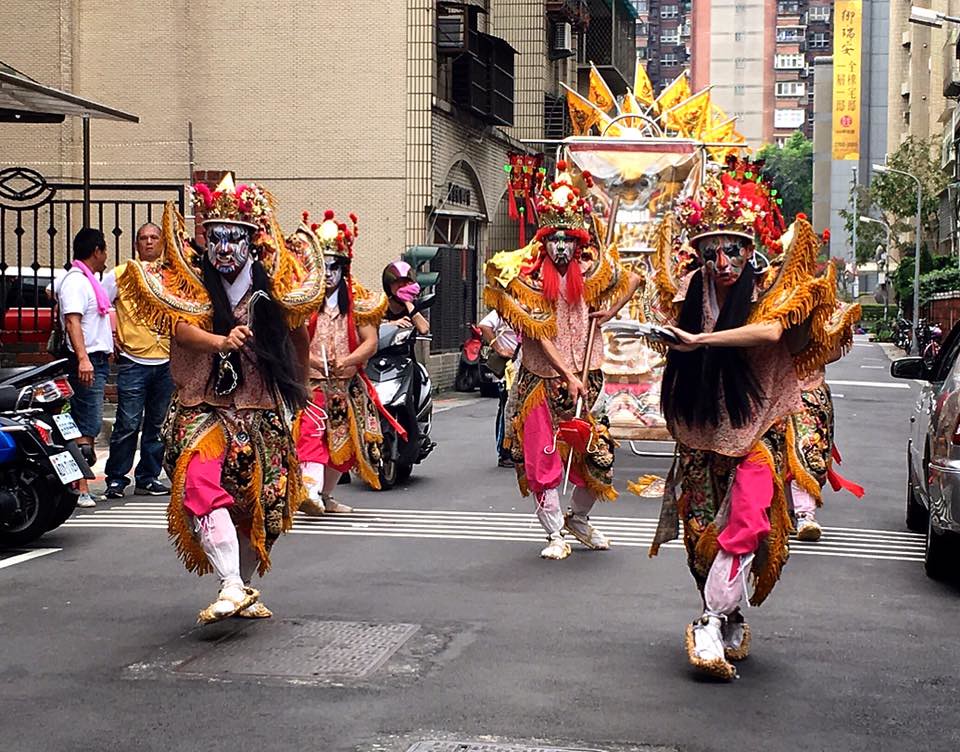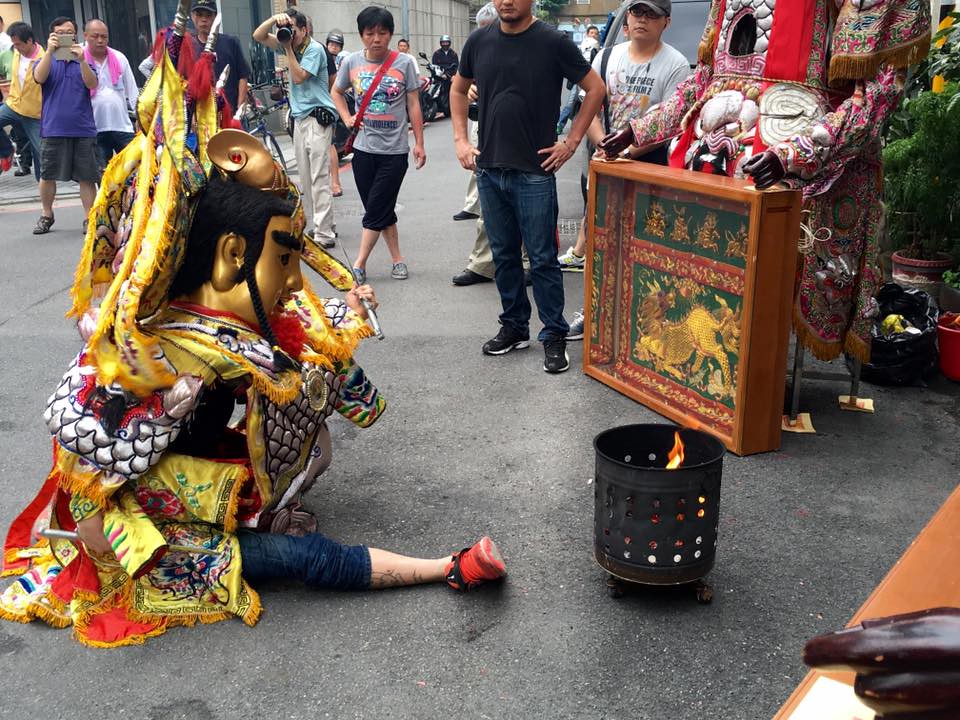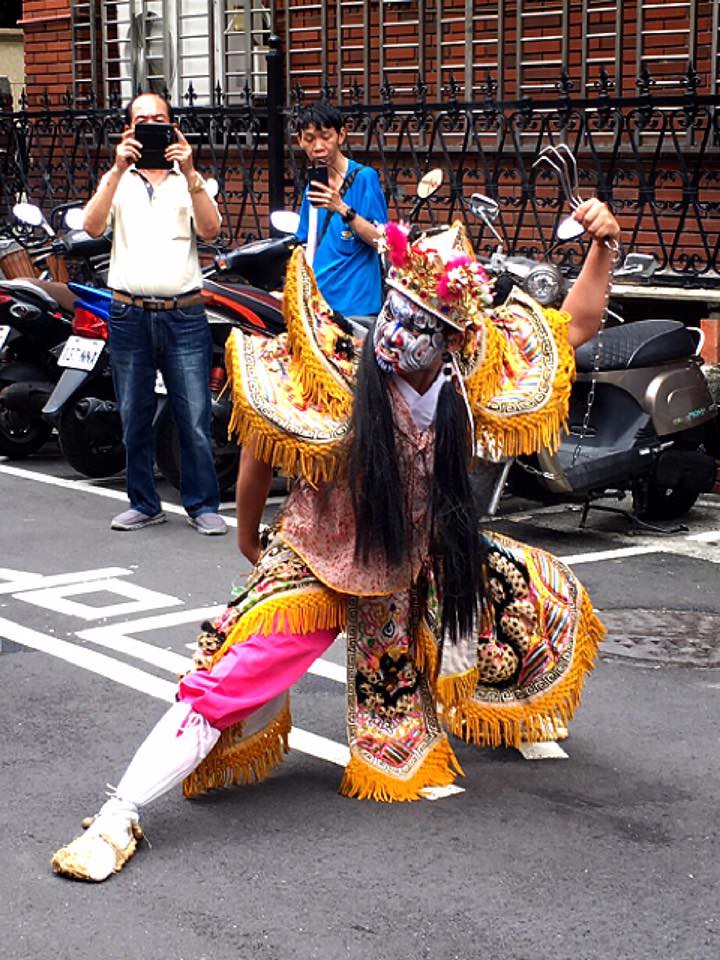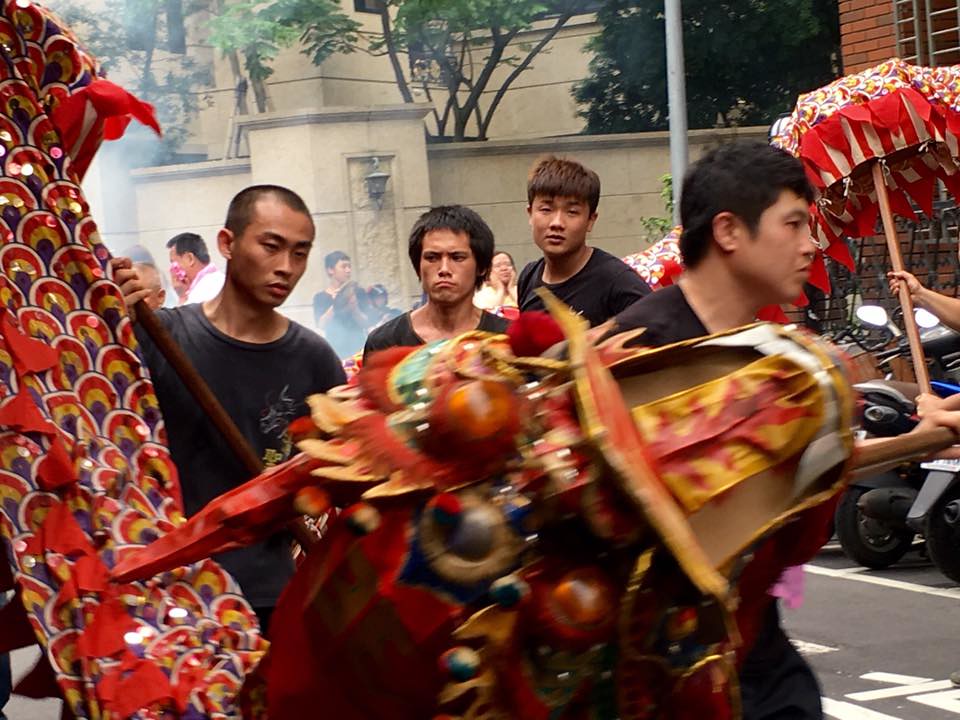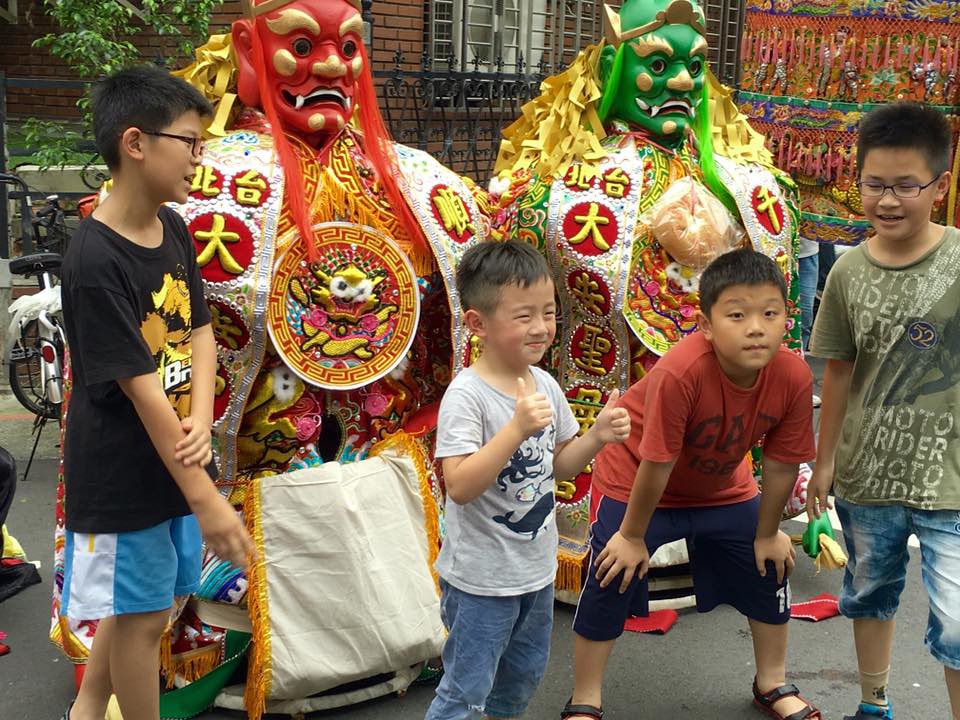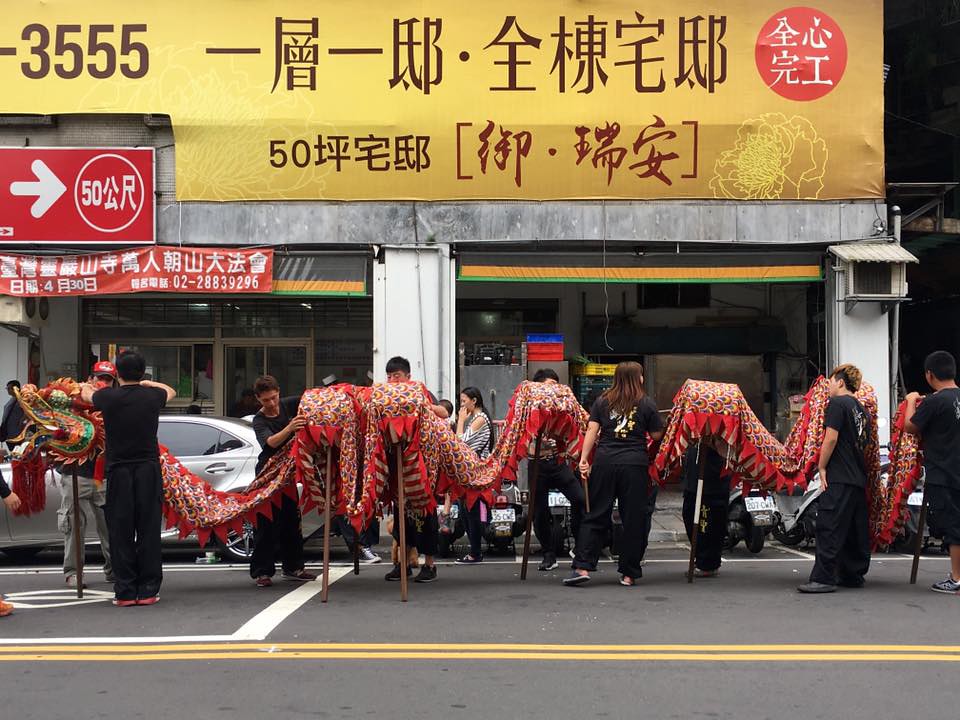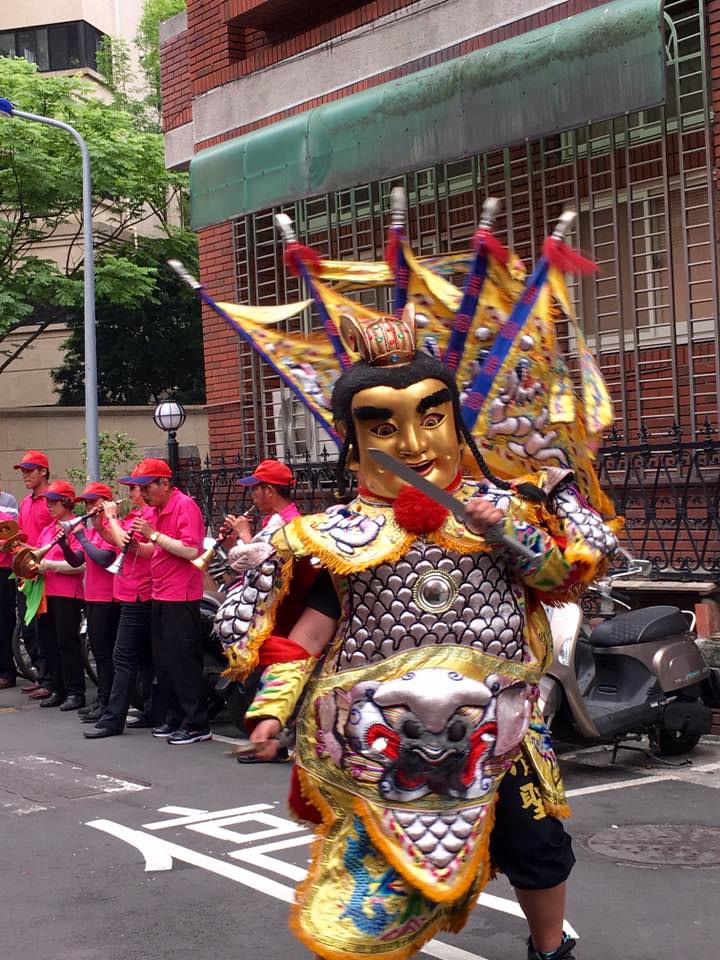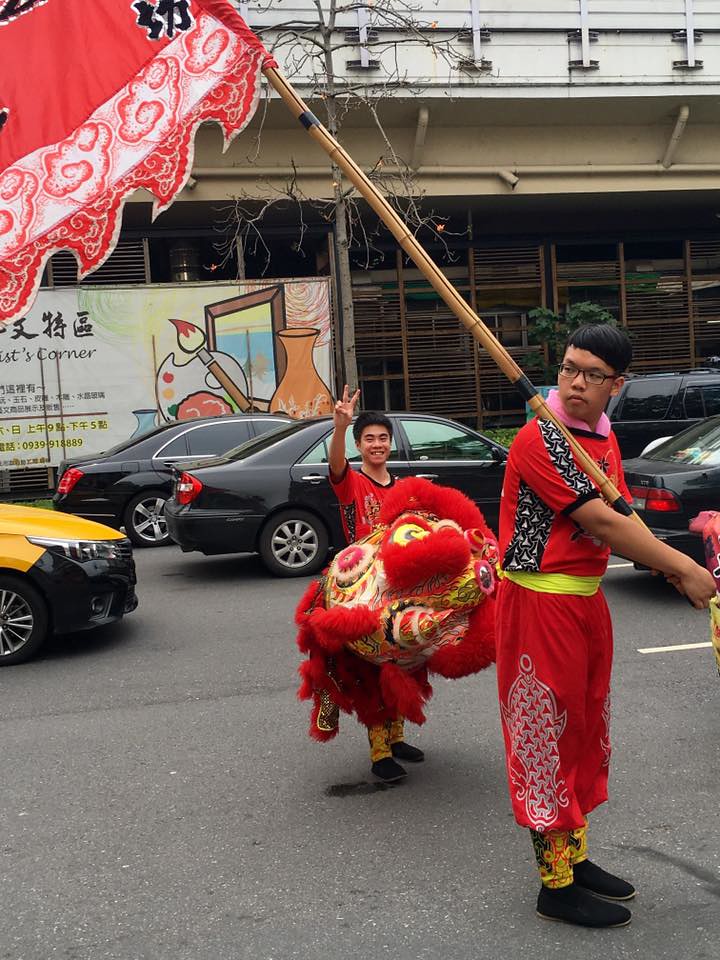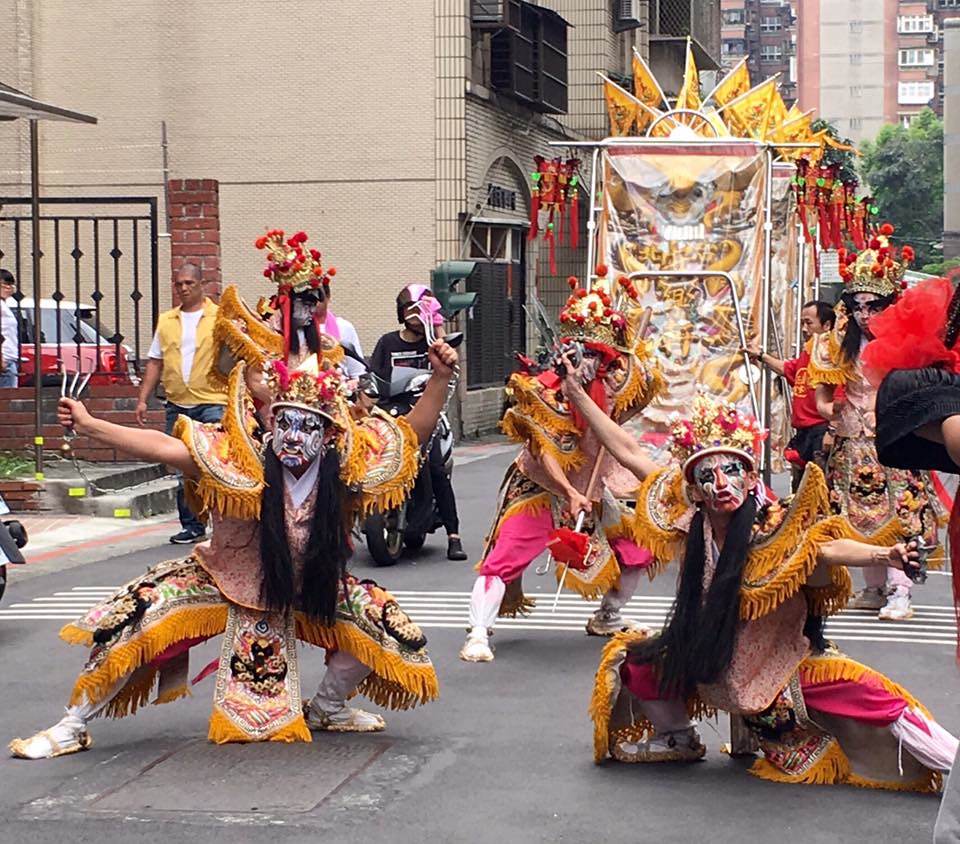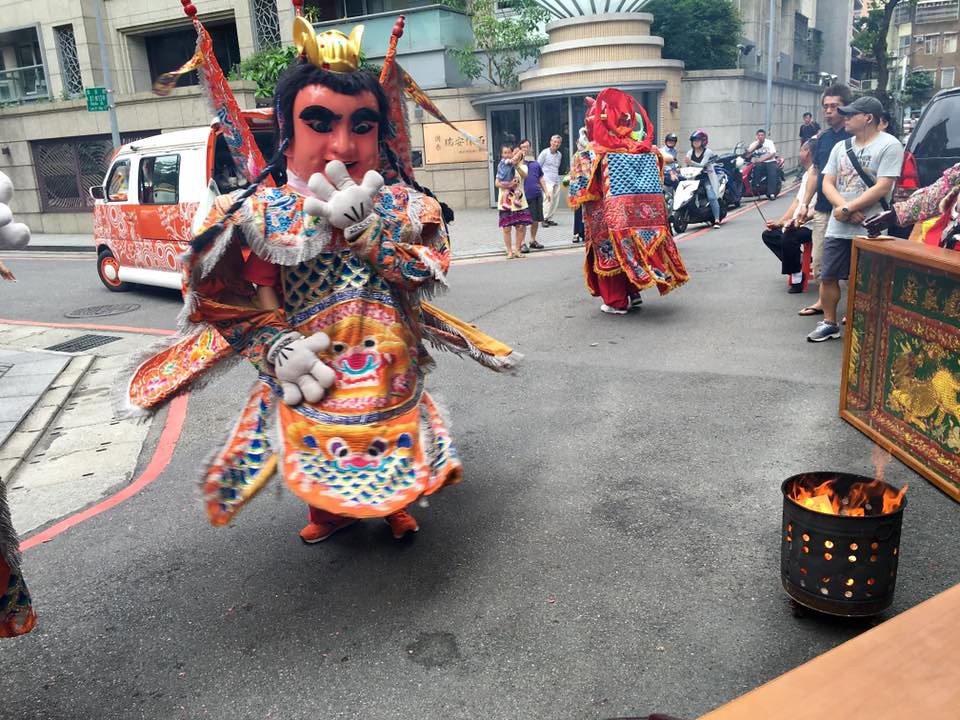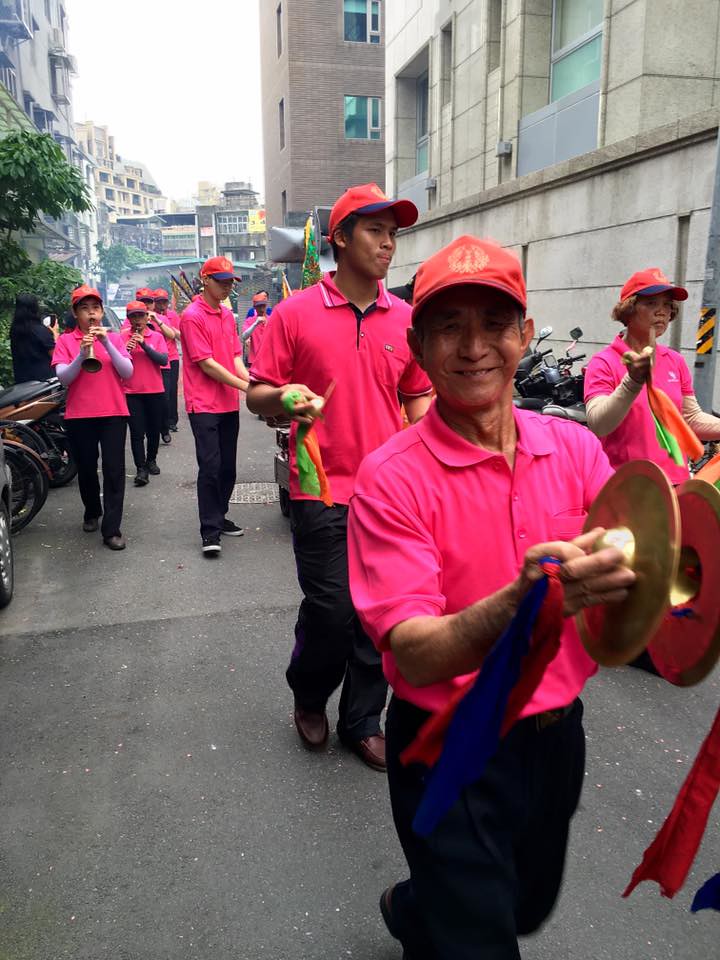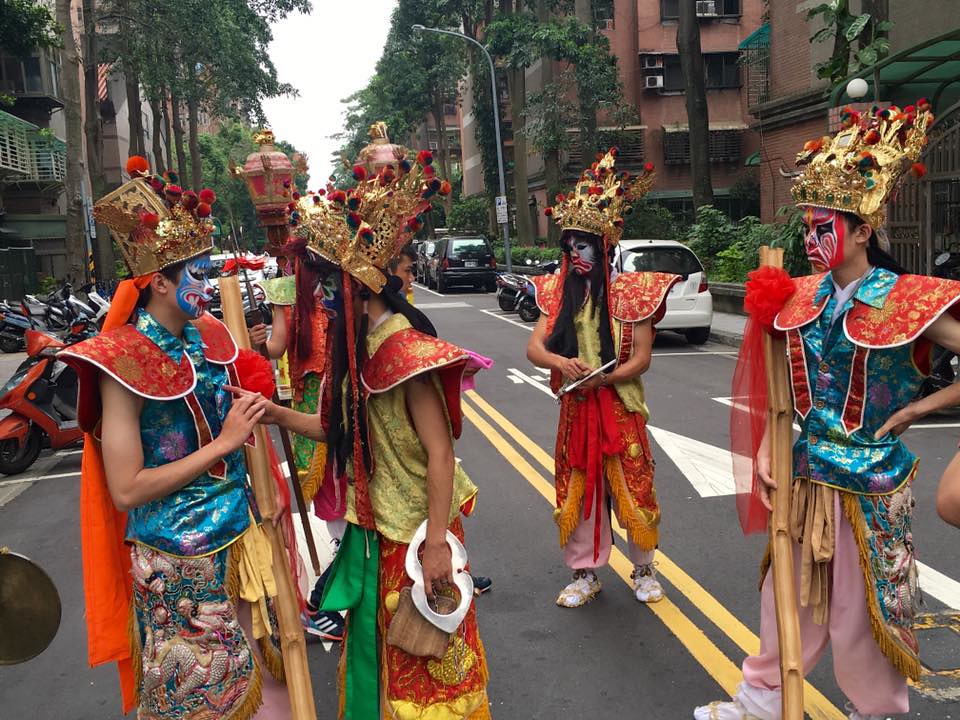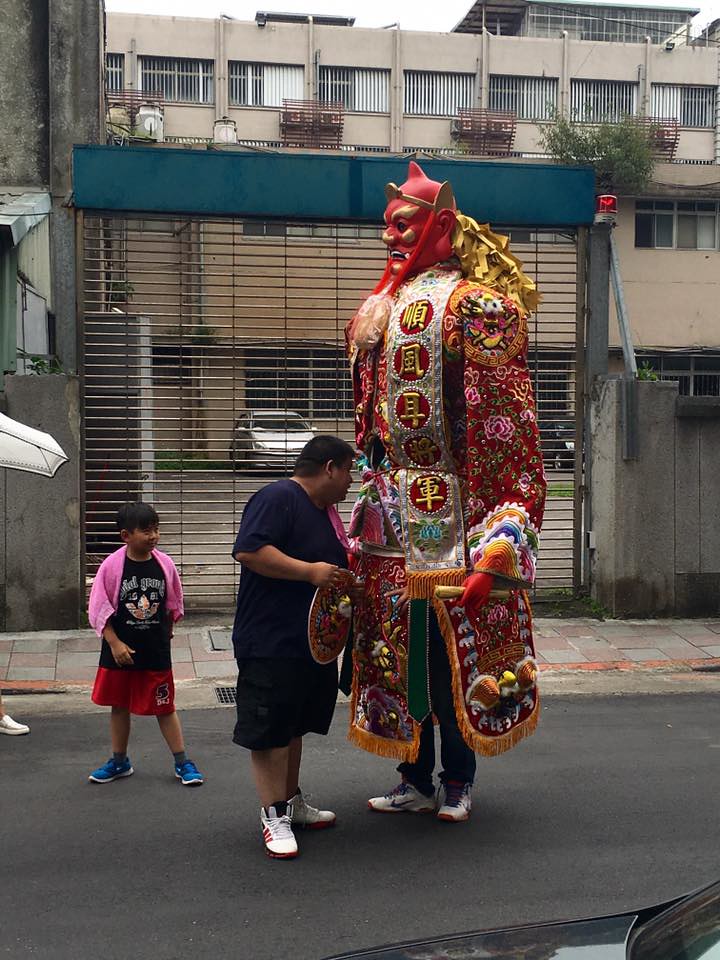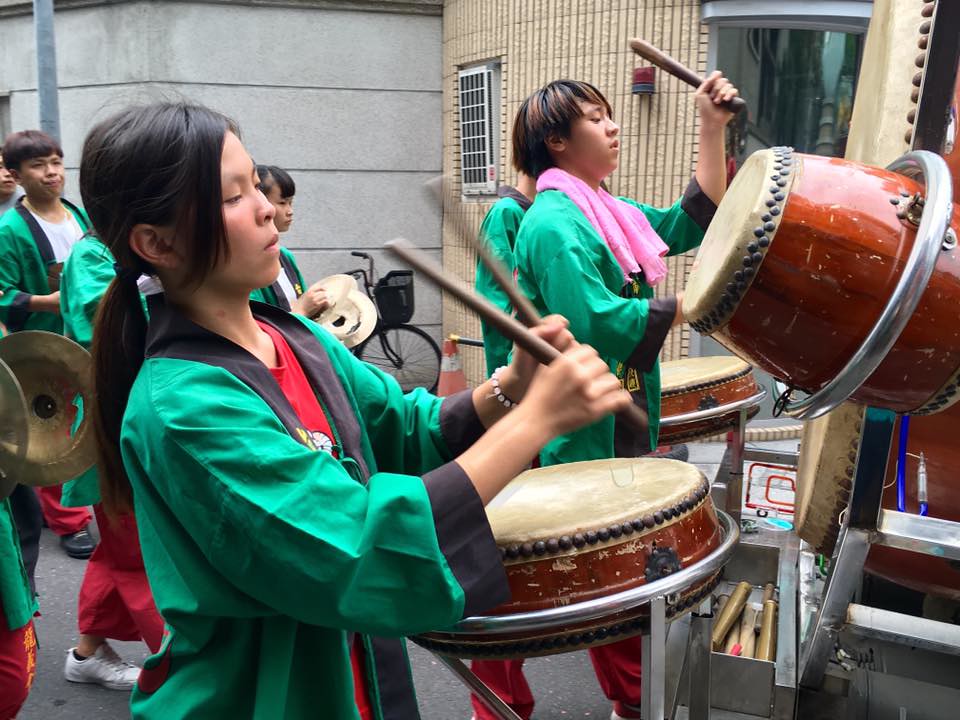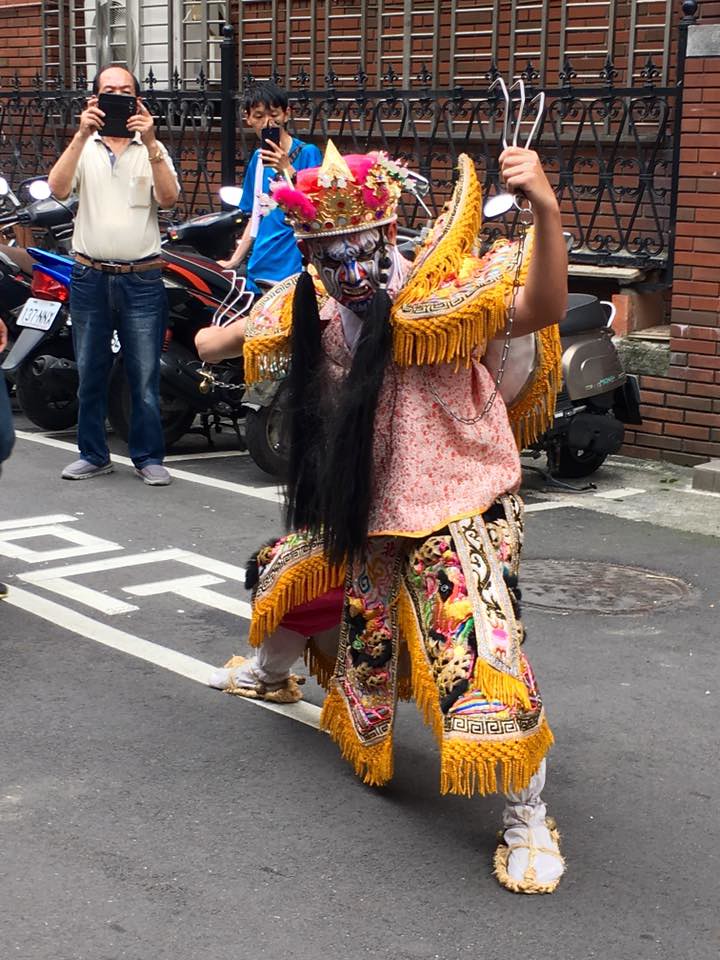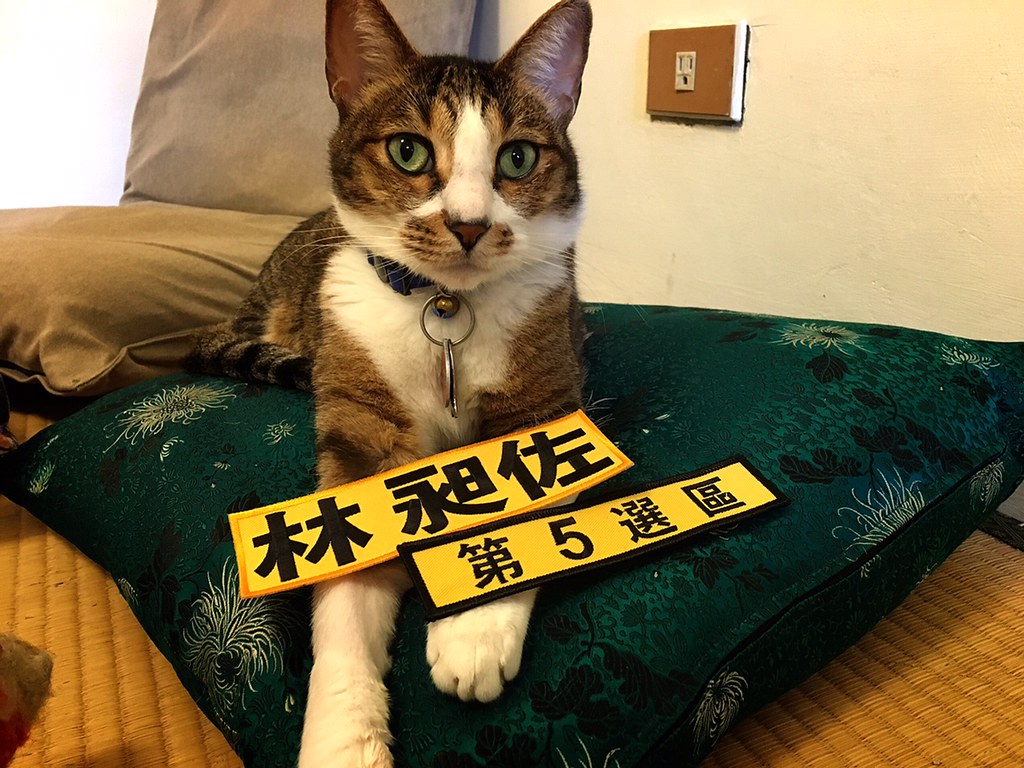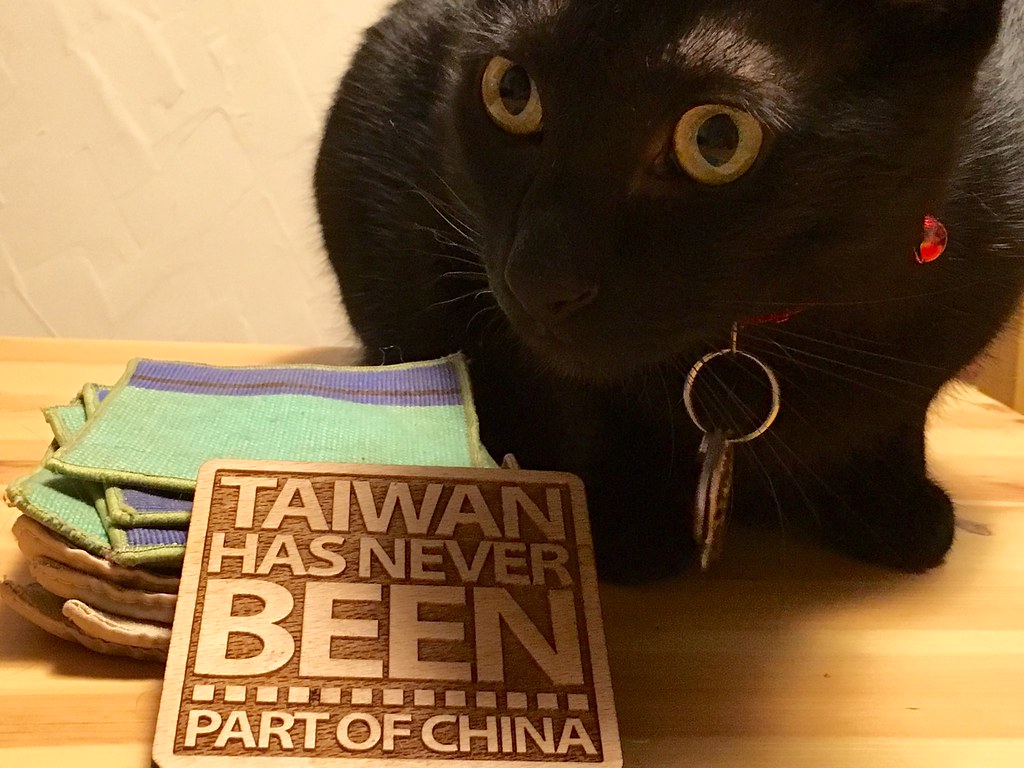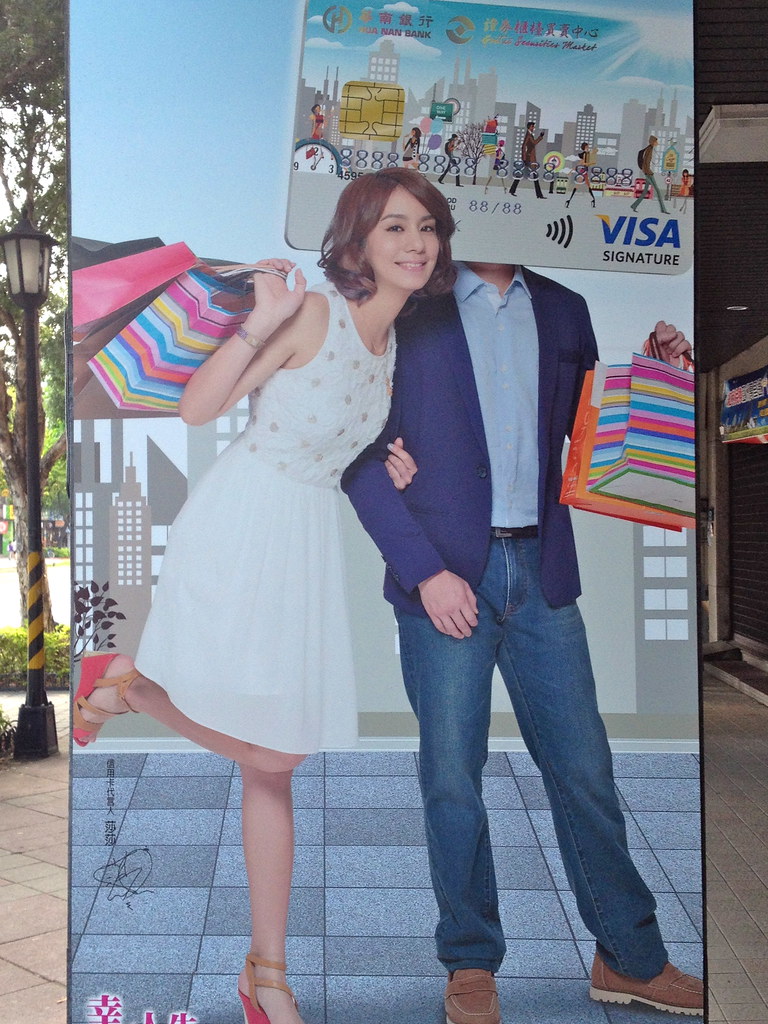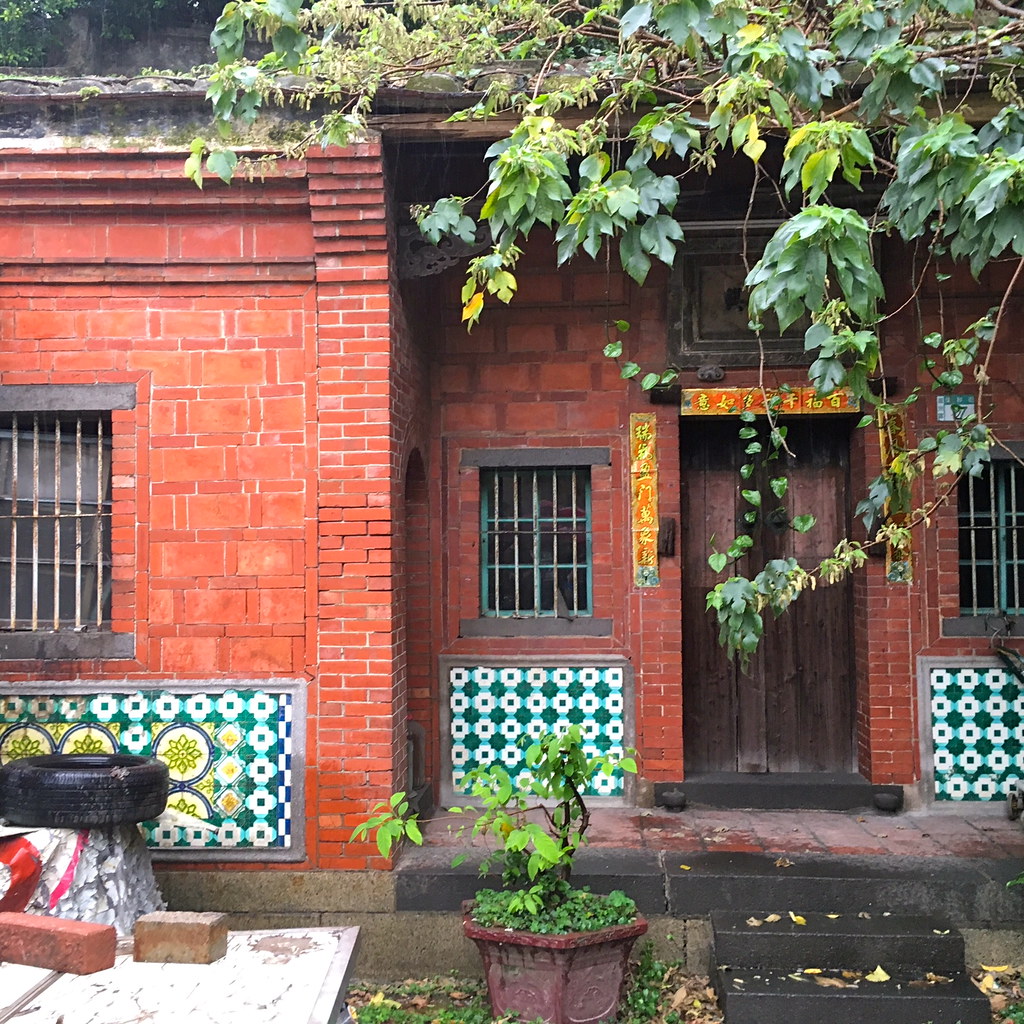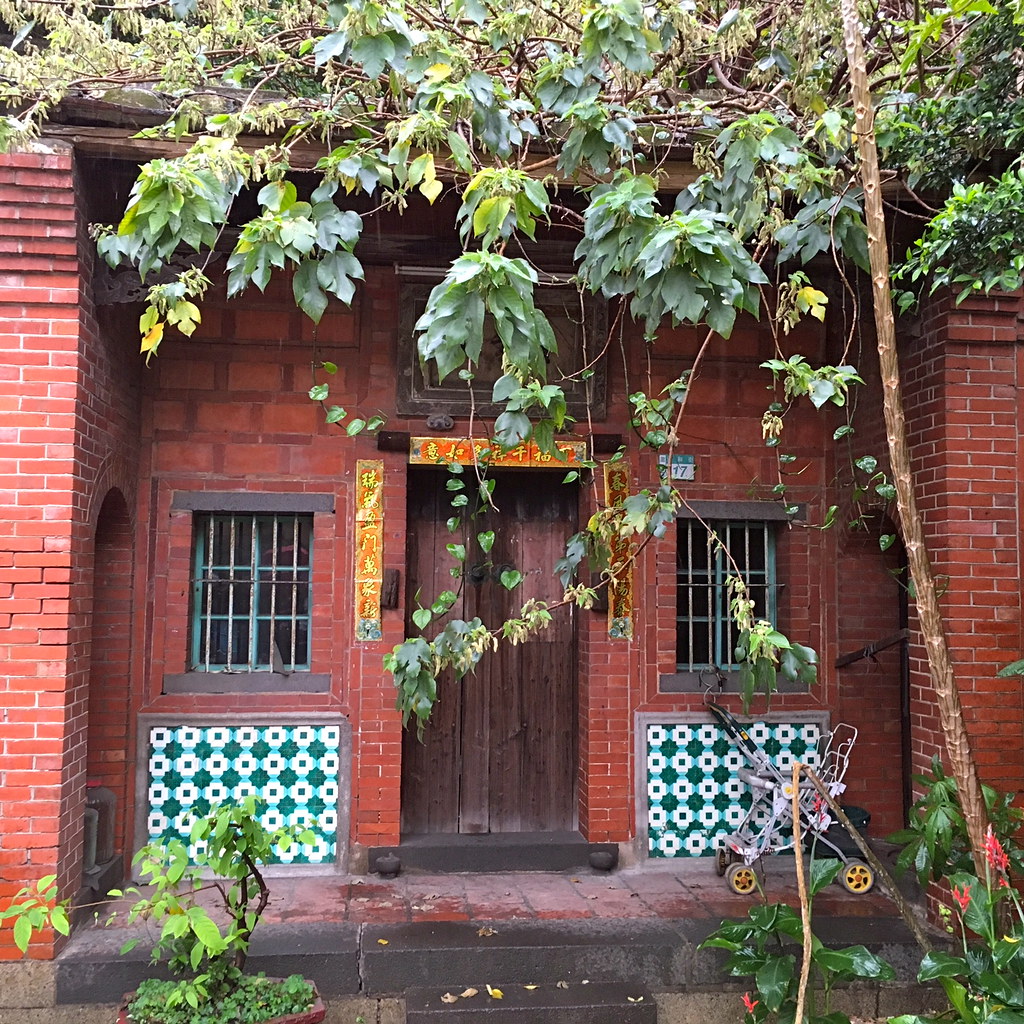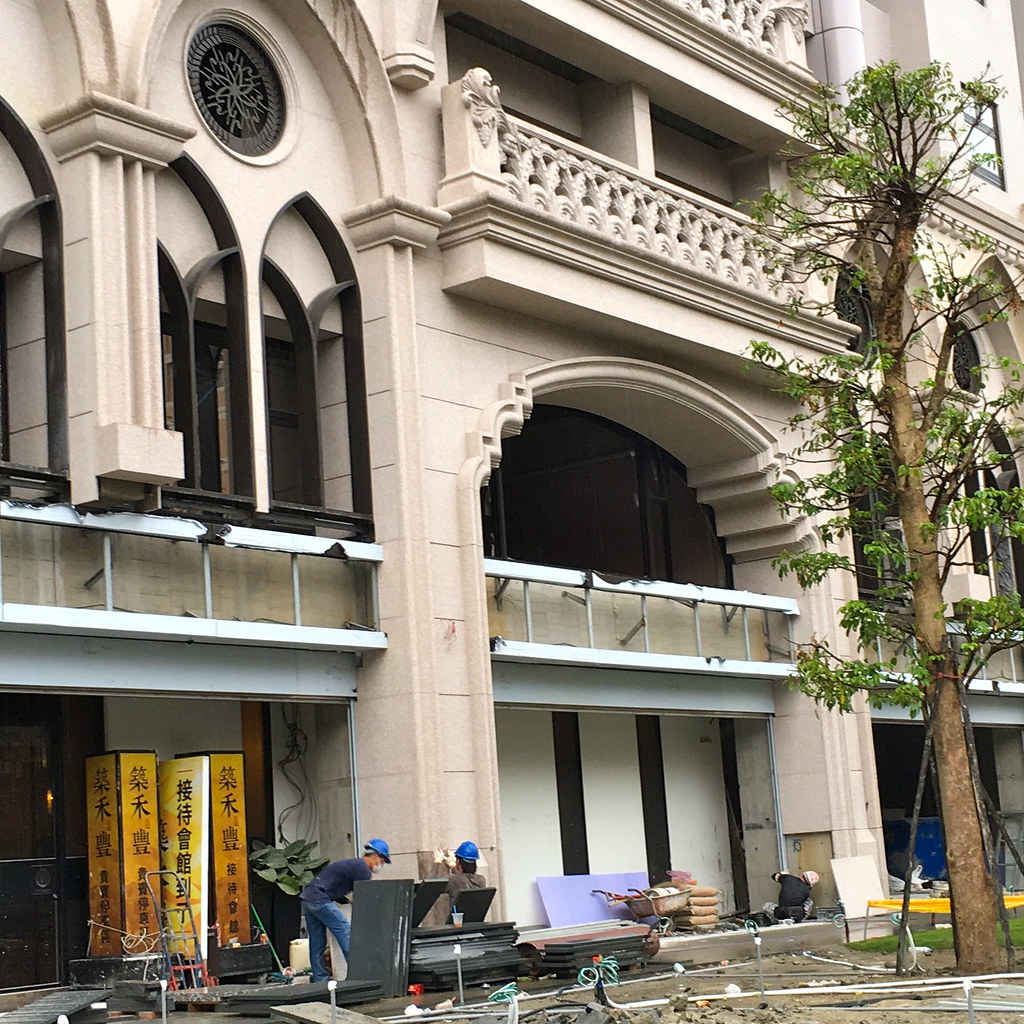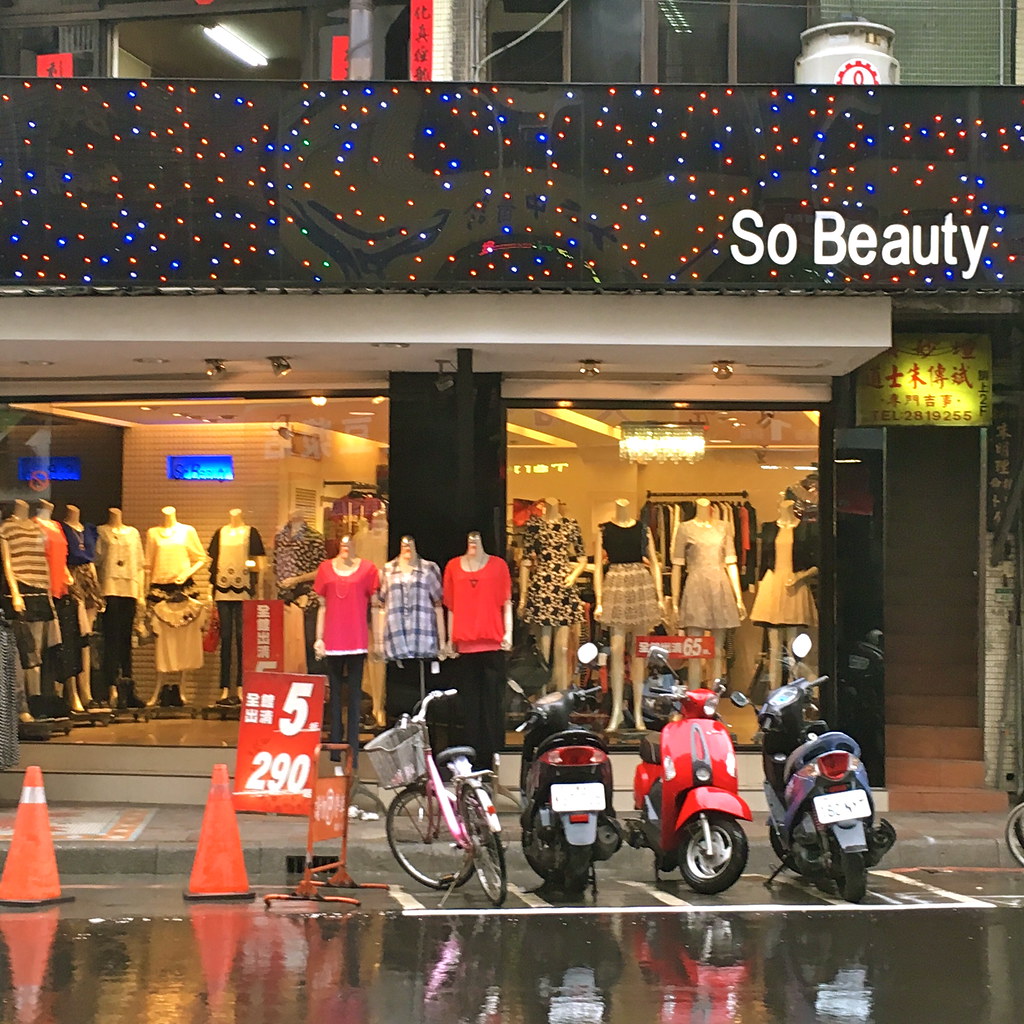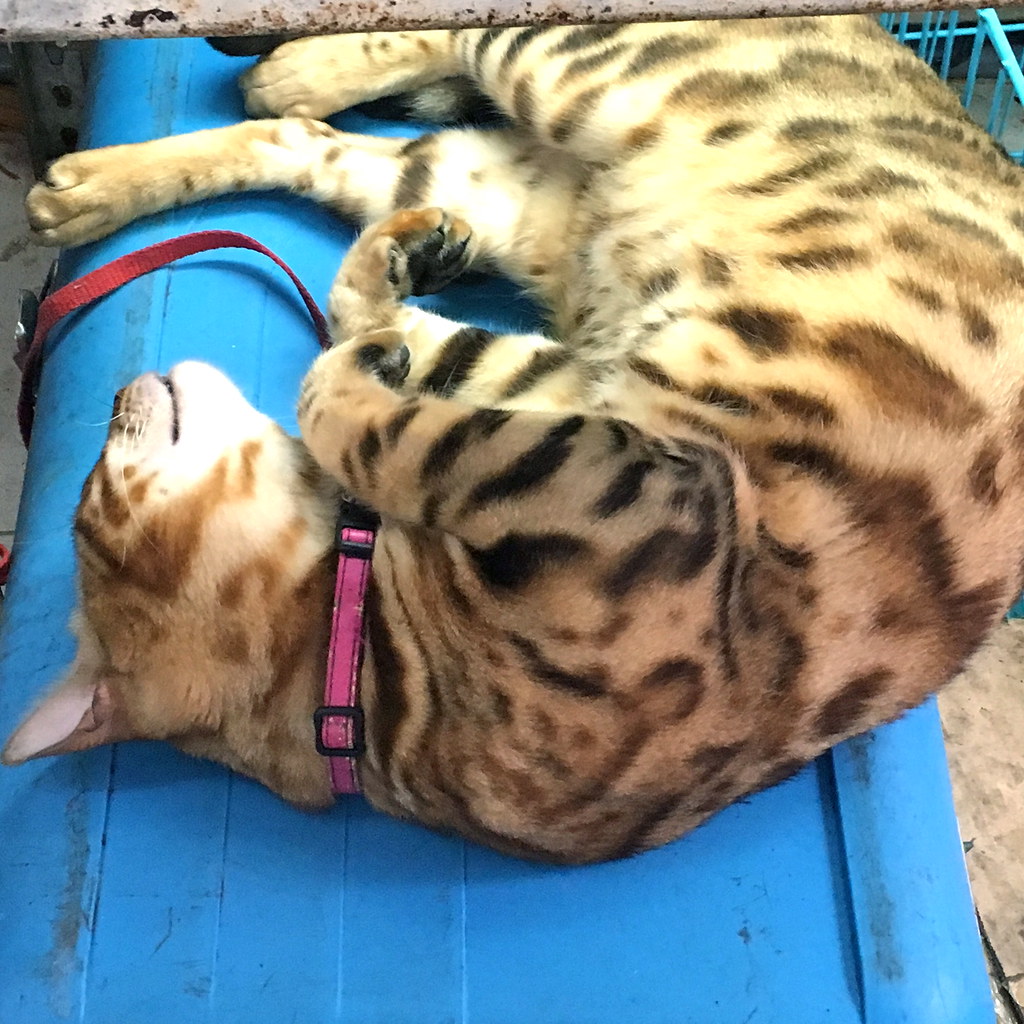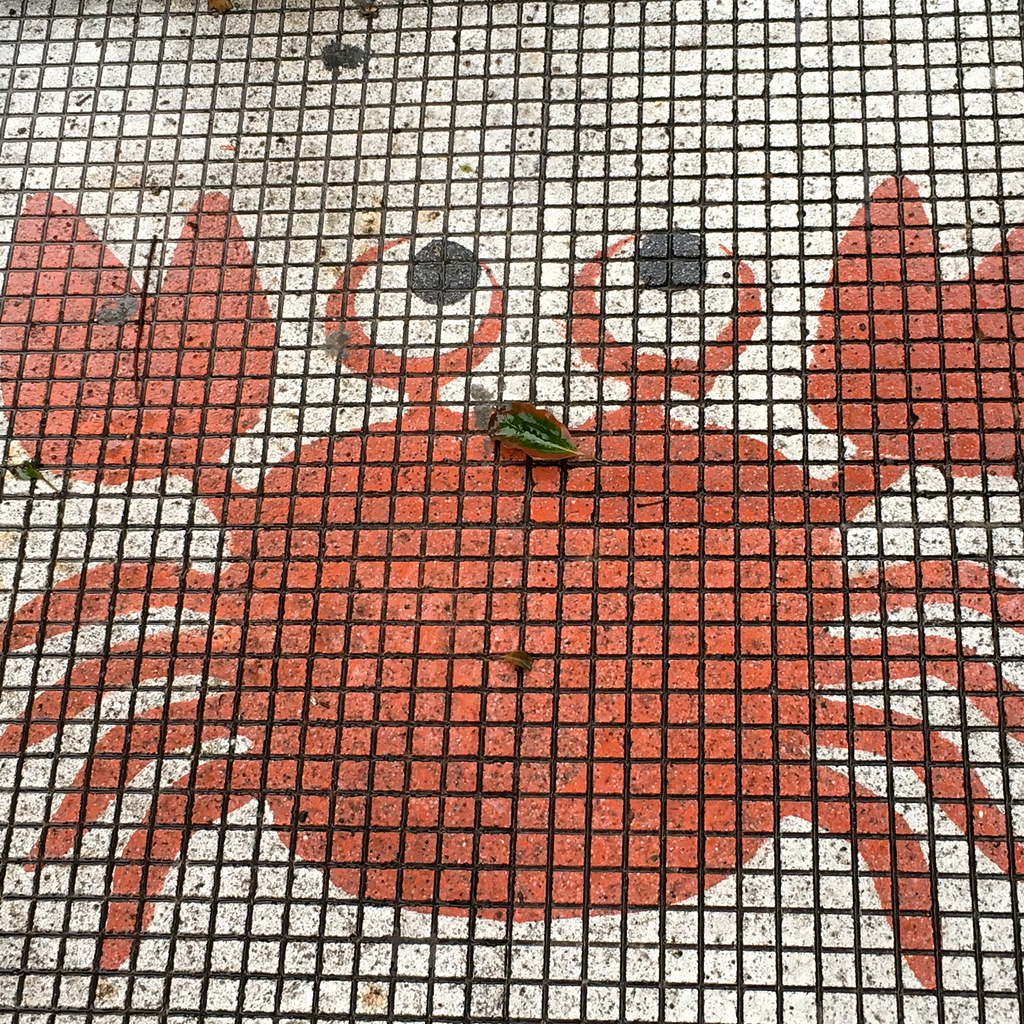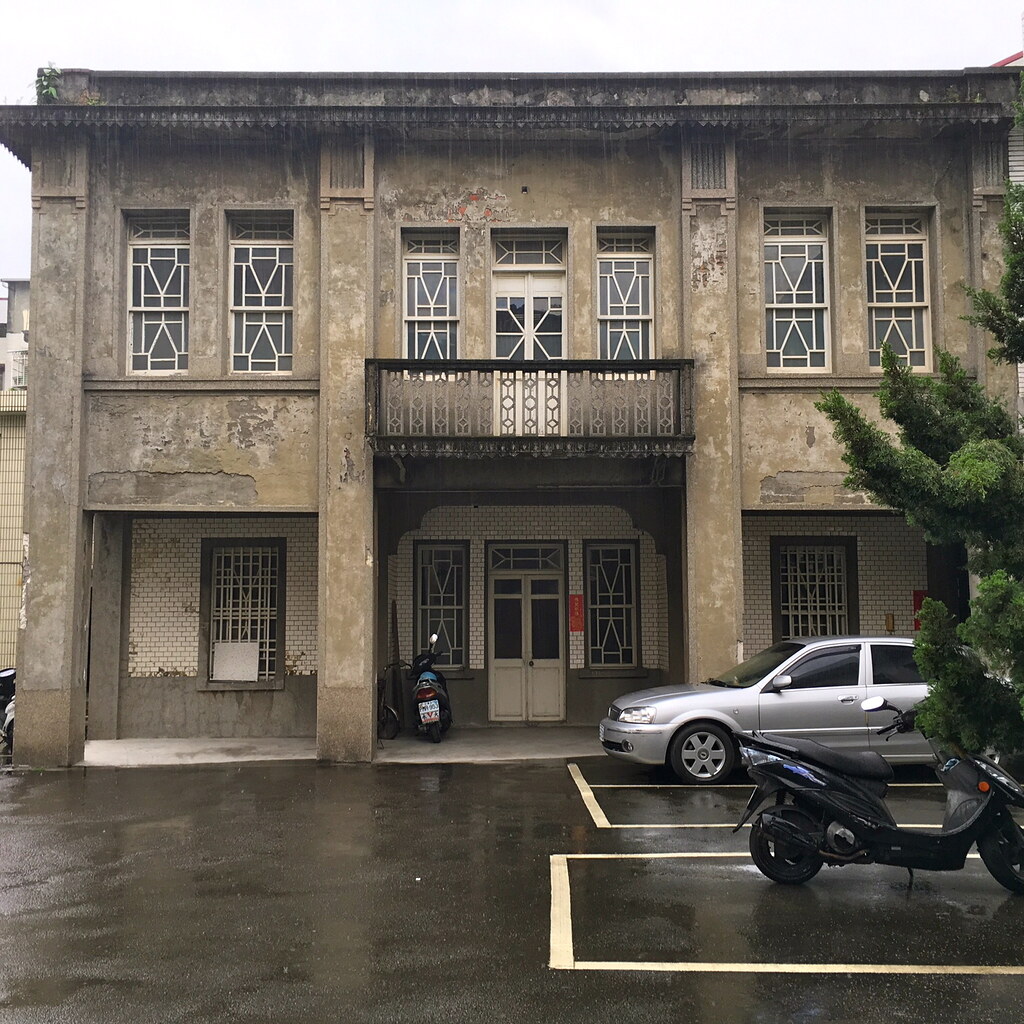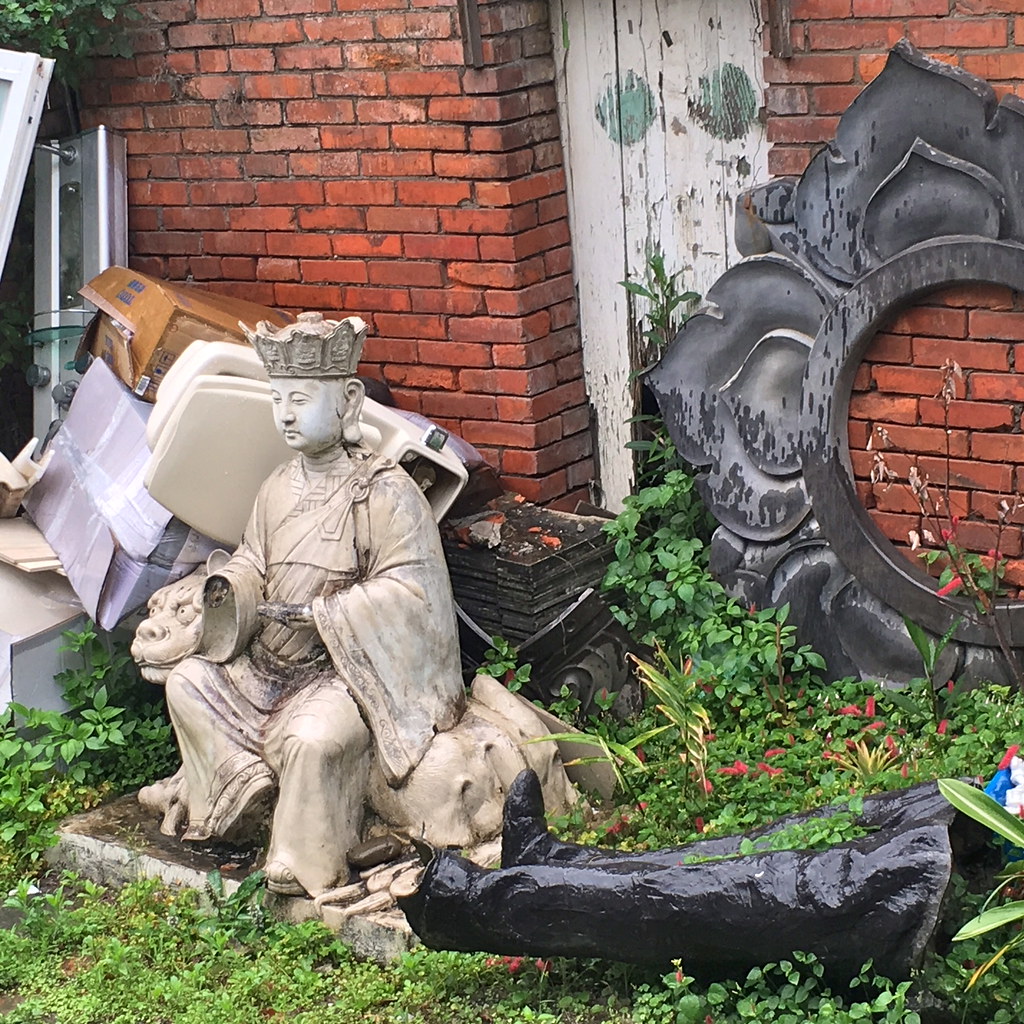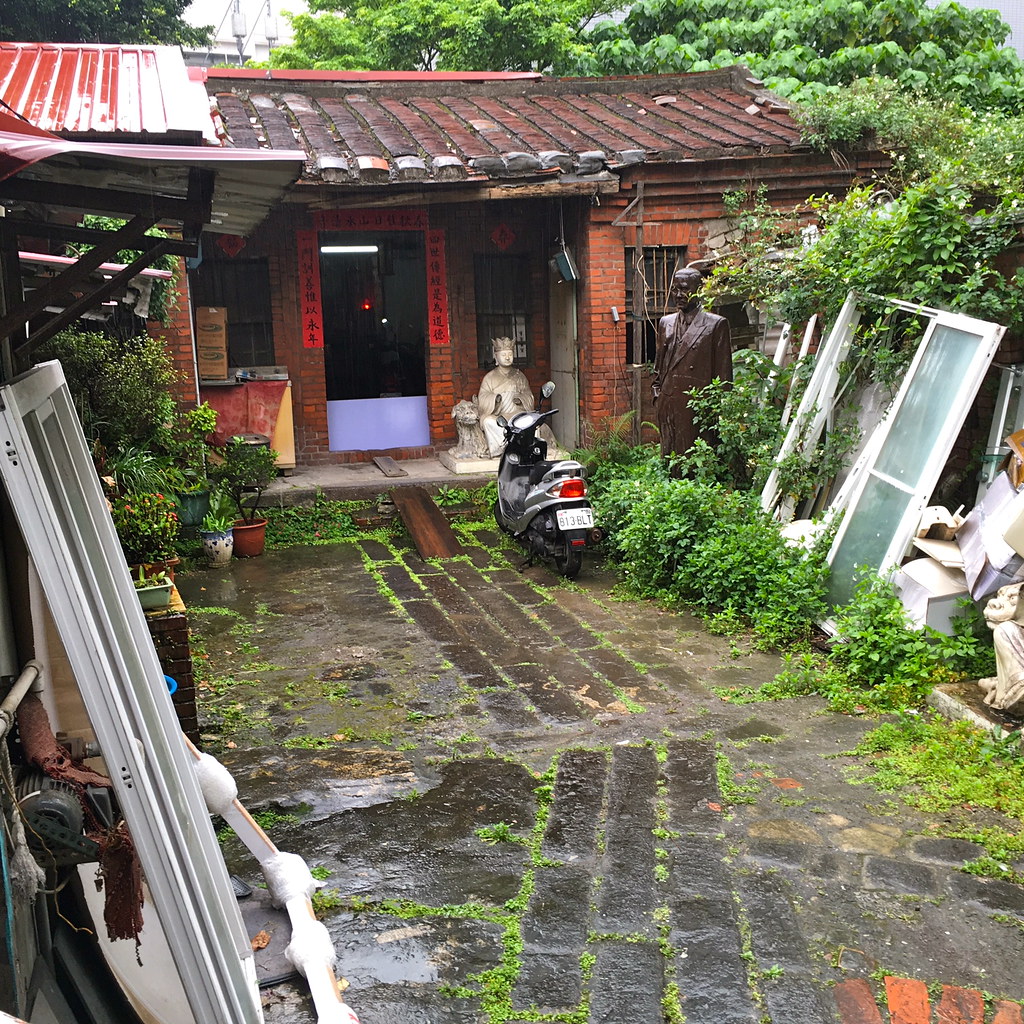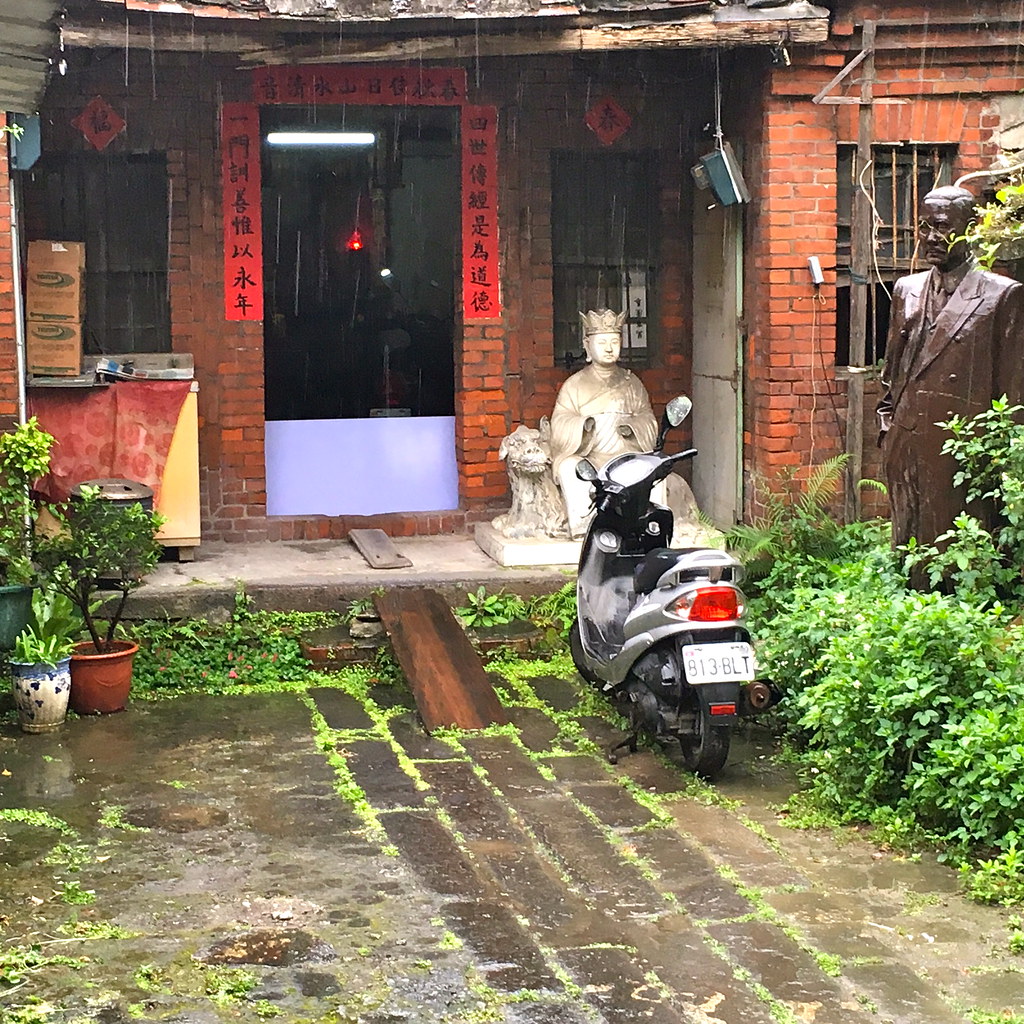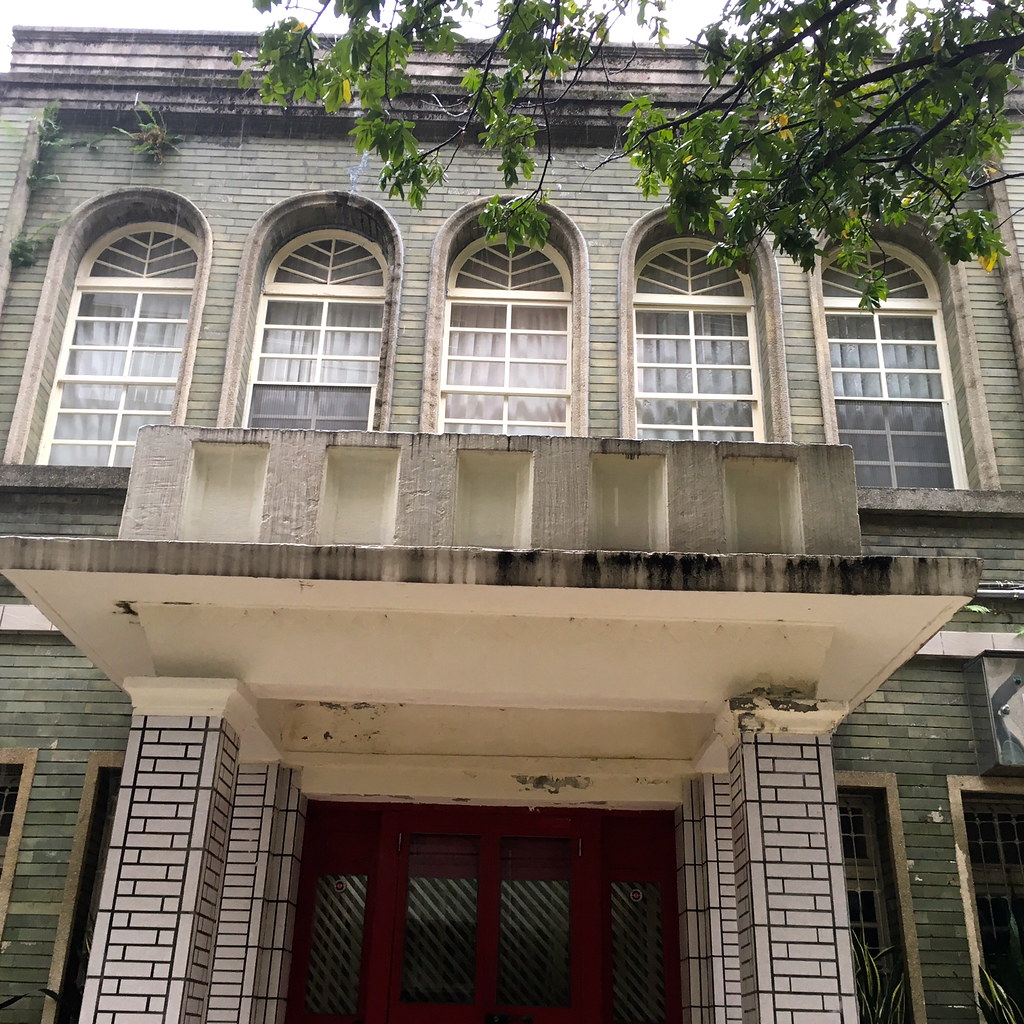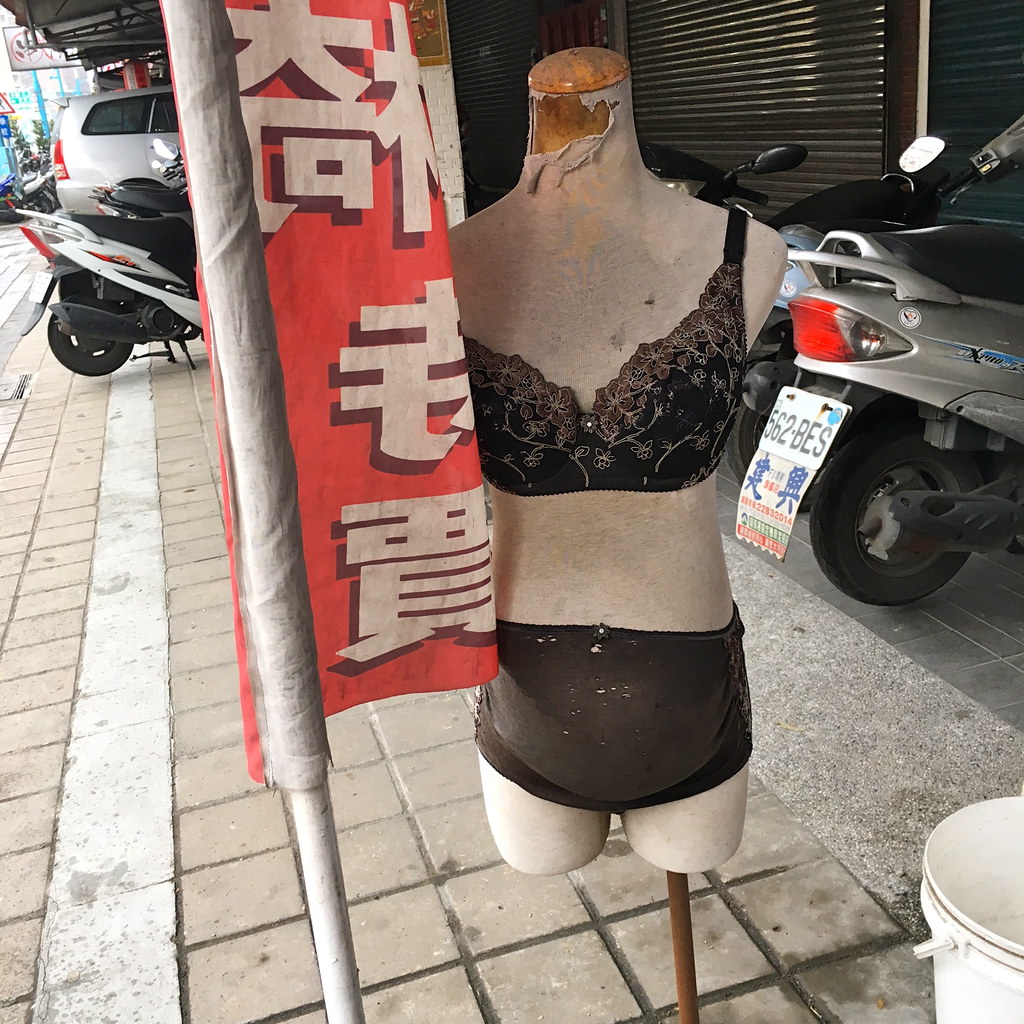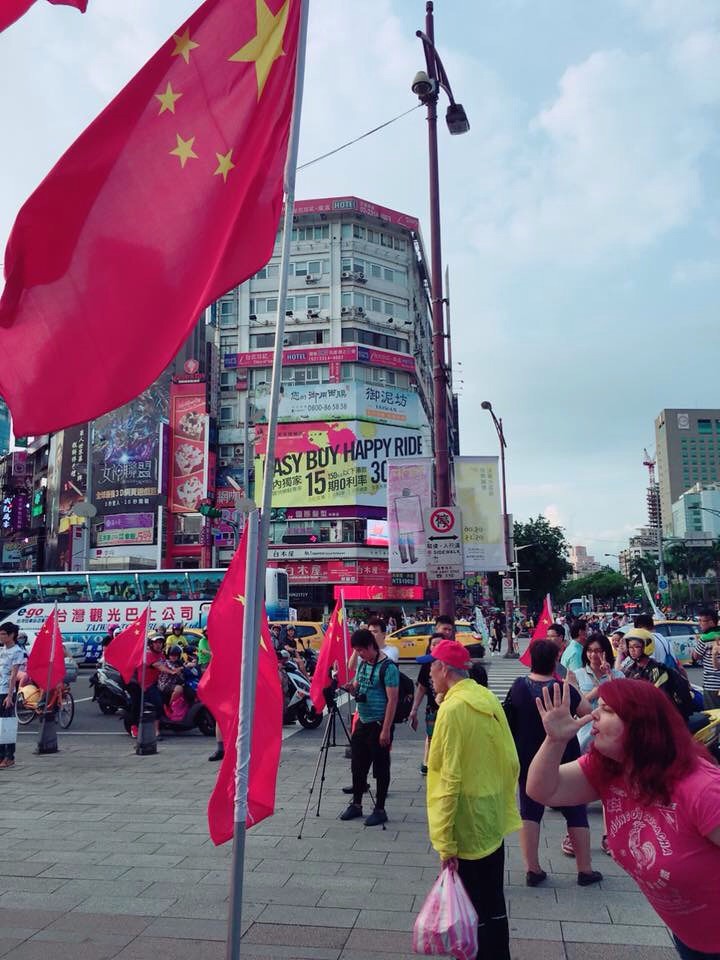
So you know how Taiwan independence demonstrators are so often found in Ximending on the corner near Red House? Well, today a bunch of pro-China supporters got permission to use that space - they had tents and a police presence and everything - to set up a bunch of Chinese flags and a loudspeaker blasting pro-China songs and rants about how if Taiwan insists on Taiwan independence, then "there will be war, missiles will reach Taiwan in just 7 minutes, Tsai Ying-wen had better take heed and recognize 'one country two systems'" followed by more bellicose patriotic songs.
Video is from Taiwanreporter - I took some videos too and will put them online soon, for now this one is fine. In fact he got a lot of the same people on camera as I did, including the person saying "Taiwan Number One". Watch through and note the reactions of bystanders. Who does it look like they support?
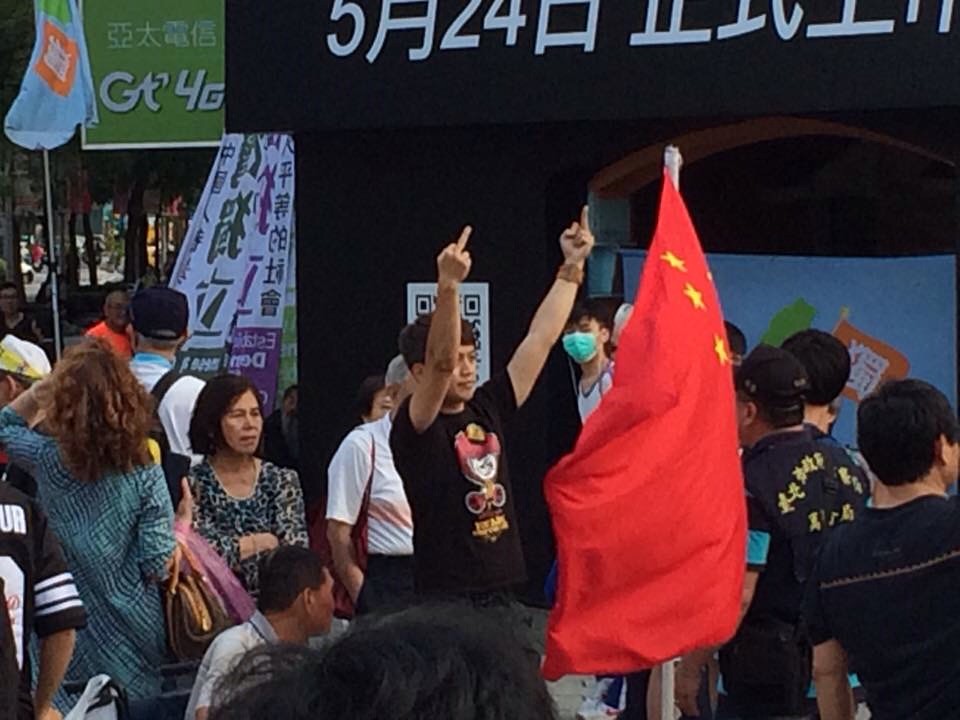
This guy is my hero!
Photo by my friend Ellery Hamann
My first thought was that these were protesters from China, which should absolutely not be allowed. But, no, with police protection and all the trappings of a legit protest, they were almost certainly Taiwanese citizens who just happen to have douchey opinions.
In fact, as Taiwanreporter pointed out, they are (almost certainly) the same folks who until recently protested and try to create trouble around Taipei 101, until Mayor Ko put a stop to it.
That's not a reason to deny anyone freedom of speech, of course, and they have the right to do this in public as much as, say, any of us have the right to demonstrate for Taiwanese sovereignty. I'm also not going to join the calls to 'deport them back to China' because, well, they are citizens too. I'd love to deport Ted Cruz to Canada but he is as much an American as I am. Every country has its jerks. But, I can't help but wonder if they'd be happier in China, and if they love it so much, why don't they just move there of their own accord? Why do they have to cramp our style, insisting on a political solution that will never be acceptable to Taiwan, when the majority is just not with them and never will be?
So my second thought is that they were paid. And they almost certainly were - I highly doubt this is just a spontaneous display of love for China. That's just not in the national. attitude right now and honestly, hasn't been...well, ever. Even the "we will force you to. Be Chinese, we are better than you because we come from China so we'll murder everyone who disagrees with us and stamp out your cultural touchstones" KMT fucklords weren't pro-PRC. until recently, and even now they wouldn't dare be so open about it. Almost no doubt about it - these guys were paid by China to stir up trouble in the run-up to Tsai Ying-wen's inauguration and provide a colorful backdrop that China can refer to when trying to make the dubious claim that some Taiwanese support "reunification" (heh).
It happens a lot in Hong Kong - on important days or on days when there are pro-Hong Kong demonstrations, pro-China counter-protesters show up too, and they are almost always paid. Whether or not they are sincere is almost beside the point - if the government has to pay them to protest, then they are not acting in good faith vis-a-vis public discourse. This is also in part for photo ops that Beijing can shop around to show that some Hong Kongers 'want to be a part of the PRC'.
Not to get too conspiracy theorist but seeing as it was in part an anti-Tsai protest, I have to wonder how much they were encouraged or 'allowed' by the KMT. Remember, as much as we'd all like to forget, Ma Ying-jiu is still the president.
So why am I writing about them? Why am I giving them air time? They may have the right to protest but they don't have the right to be paid attention to, yes?
Yes! But.
I wanted to point out two things. The first is that there are almost no actual protesters there! Take a close look at the photos once they are posted. There is one guy in a vest, a woman with a sign and an old guy waving a big flag (who looks suspiciously similar to the driver of the Musical China Douchemobile - and probably is. It's like the same four people at every protest, because China couldn't even get more than that with money). There may be a few others in the tents hiding from public view. All that sound and fury is coming from a LOUDSPEAKER! They're no better than some stupid recording blaring about discounts on Panadol outside of a Watson's or Cosmed. There are a few flags, a loudspeaker and a couple of people.

Look! There's nobody actually there!
Perhaps it was because the Chinese government perhaps could not find enough people who would even do this for money in Taiwan who could do so legally. Wouldn't surprise me if that were the case. There are maybe three or four people in all of Taiwan who support unifying with the PRC, and the same three or four people show up at every paid protest with flags and loudspeakers to create some sound and fury, to seem bigger and more important than they are.
What amuses me is that unless these photos are strongly photoshopped, with people added in, or cropped creatively, they actually make China look worse - you can't even get a person to sing that dumb Chinese song? You have to use a loudspeaker? You can't get more than less than half a dozen people? What does that prove? How does that make China's case? It doesn't - it shows the opposite.
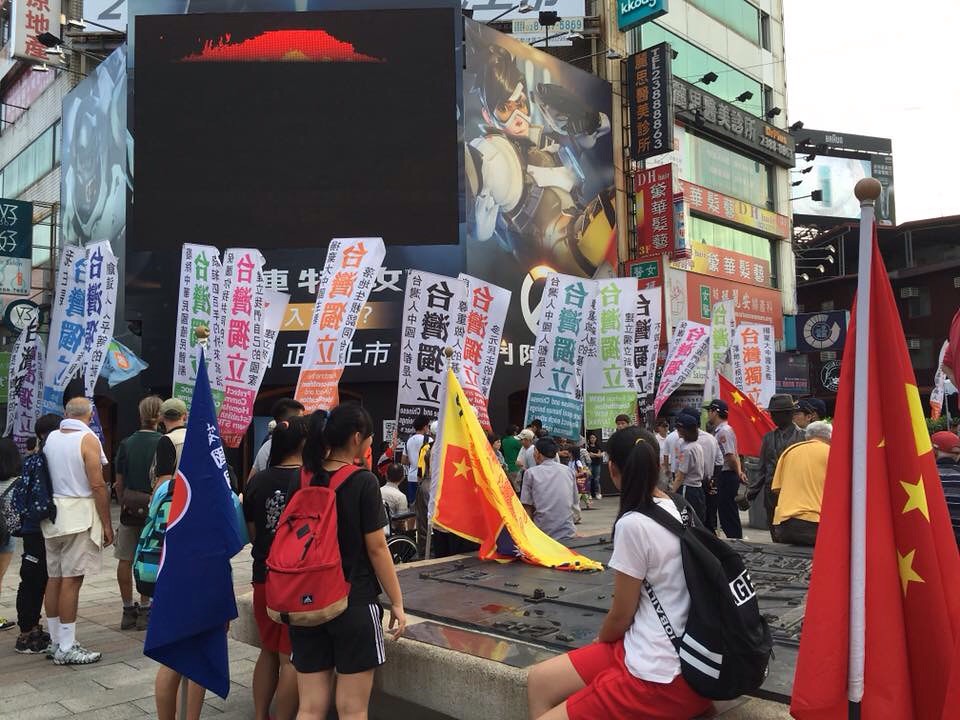
But there sure are a lot of people counter-protesting.
Perhaps it was because the protesters knew that they would not get a lot of support from passers-by, or any support really. They knew that if they showed their faces they'd get booed or laughed at, so they didn't show their faces for the most part. That is, of course, if more of them exist than were present earlier today.
This part really gets me - if you have a douchey opinion, fine, as long as it more or less lines up with facts you have the right to it (you do not have the right to be right about it, though). But if you're going to set up a street protest to express it, at least have the balls to show up in person. What kind of dickless wonders take Chinese money, then hang up a few flags, set up a loudspeaker and won't even show their coward faces? Absolutely no sympathy, no respect for that. I've got bigger balls than these guys. I may be a foreigner, but at least I'm willing to say, from my own mouth and in person, what I think (yes, foreigner residents to have the right of assembly in Taiwan - we can protest legally as long as we are legal residents and not undocumented or tourists). Christ. Grow a pair.
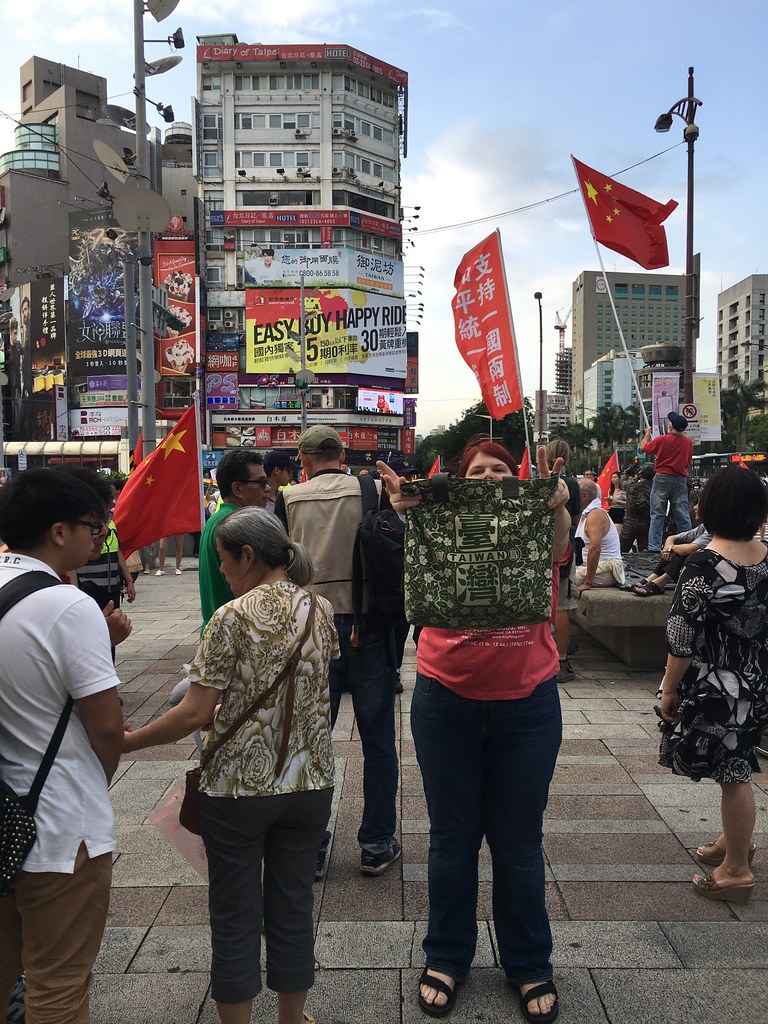
And protest I did, though I look tired and haggard today which is why I partially hid my face
If they can protest, so can I!
Also worth noting is that not only were bystanders not supportive at all - lots of middle fingers, lots of shouting back, lots of making fun of these guys, I quite literally did not even see one person walk by and actually support this in any demonstrable way - but that the counter-protest (remember, the pro-independence guys usually have this corner) was exponentially larger than the laughable shell of a pro-China protest (it's not hard to have more people than a protest of three). The counter-protesters had at least several dozen people, seemingly more walking around (they'd sit, march around etc.)
All this goes to show that not only have things changed in Taiwan, but that China can't even drum up enough people for a real demonstration nor will they ever garner enough support from the Taiwanese public. Taiwanese civil society is just not on the same page as the Chinese government or even the KMT, and while the latter may change (pendulums do swing), the former never will. China has lost this one.
They have nothing. They have no soft power in Taiwan - the Taiwanese hate their government and don't want to be a part of their country. They have no supporters. They have no path to "peaceful unification". They have nothing but empty photo-ops - a few flags and a loudspeaker. They are nothing. Their words mean nothing. They never even had a grip on Taiwan to lose. Like this protest, their words on Taiwan are are hollow. Meaningless, because they have zero - zero - support in a country where support matters.
I can't help but also notice that, while these guys were once aggressive outside Taipei 101, punching those who disagreed and counter-protesters and trying to start fights, that they now seem almost cowed. One woman quietly holds a sign. The old guy waves a flag. Someone in a vest stays well behind the police line. They know they don't have the high ground, local support or even political support to start fights anymore. They bluster and bloviate and wave their flags, but look a little closer under all that sound, they are cowed.
They may talk of "peaceful unification", but that will never happen. That battle is already lost (and China is the loser). China doesn't want war - I still think they don't, anyway - but it is simply not going to get Taiwan any other way but by looking like the bratty little fascists they are to the rest of the world and forcibly annexing a developed, democratic country. All that talk of "peaceful unification" is, like this "protest", an empty shell. Meaningless. Sound and fury, signifying nothing. A few loud people who do not speak for the vast majority of Taiwanese. It can't be peaceful if the Taiwanese don't agree to it, and they never, ever will. Won't happen, can't happen. Fuck you, China. You lose. Taiwan doesn't want you, they never have and they never, ever will. Eat me.

